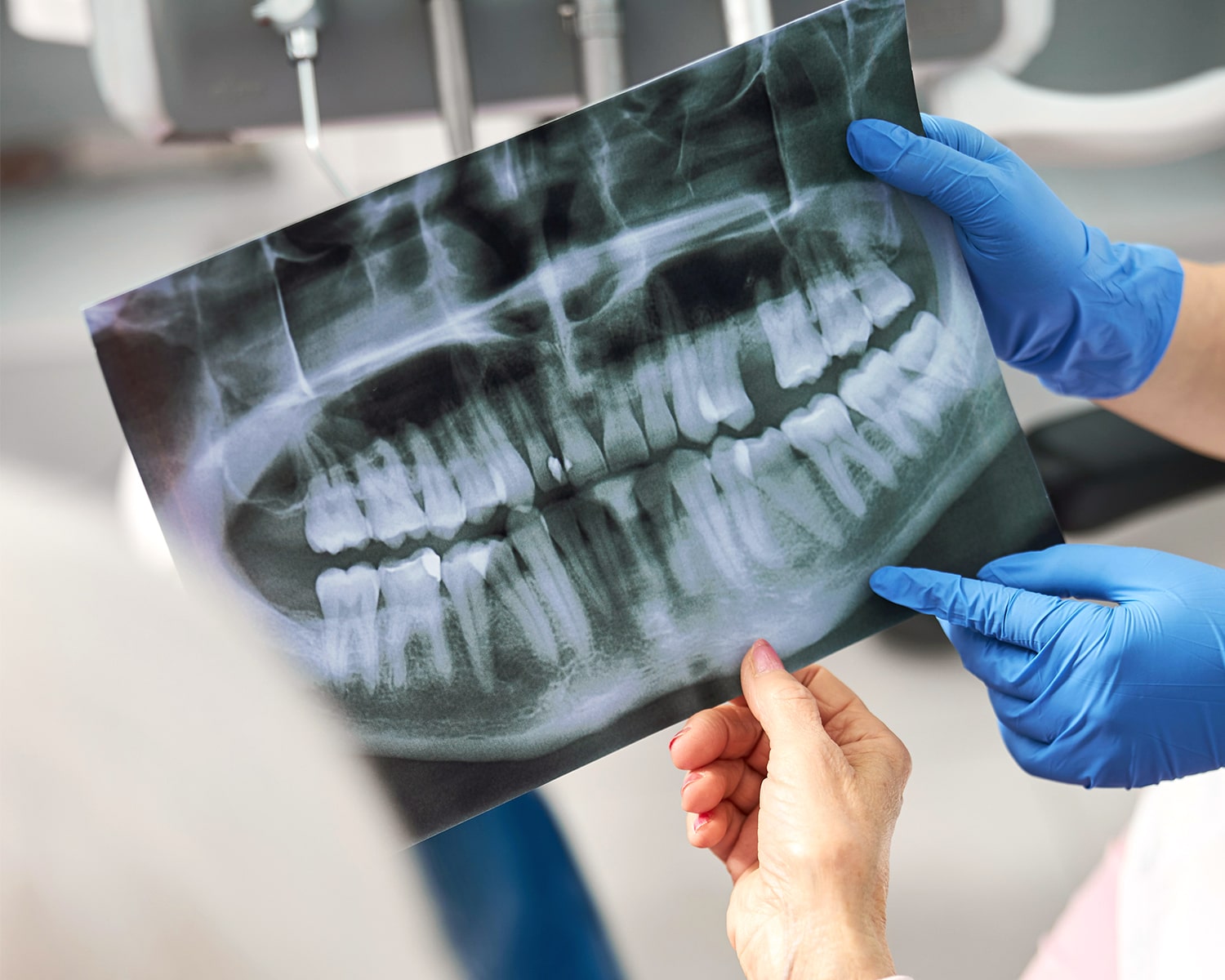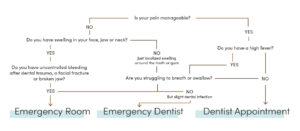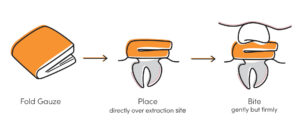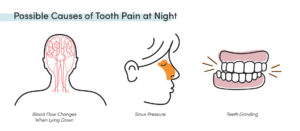Find Emergency Tooth Extraction Dentists Near You
Need an emergency tooth extraction? You don’t have to wait in pain: we’ll connect you with the right dentist. Same-day appointments are often available. One quick call gets you fast relief.

Language
Coverage
Type of Care
Coverage
Language
Type of Care
Loading dental practices...
Types of Emergency Tooth Extraction Services
Abscess Treatment
Removing a tooth when infection threatens to spread.
Broken Tooth
Relief when a damaged tooth can’t be saved.
Impacted Wisdom Tooth
Urgent removal to reduce pain or swelling.
Decayed Tooth
Extracting a tooth that’s too damaged for a filling or crown.
Trauma-Induced
Removing a tooth badly injured in an accident.
Infection Control
Antibiotics or drainage to keep infection from spreading.
What to Expect During Your Emergency Visit
Evaluation
Dentist checks your symptoms, takes X-rays to confirm extraction is needed.

Pain Control
Local anesthesia or sedation to help keep you comfortable.

Treatment
Tooth removal, socket cleaning, and clear aftercare instructions.
Why You Shouldn’t Wait
Putting off an emergency extraction only makes things worse. A bad infection can spread to your jaw, face, or even bloodstream, raising the risk of sepsis. Dentists and medical experts stress that you should not wait and hope it passes, because quick action matters. If you can’t see a dentist right away and the swelling is spreading, or if you’ve got a fever, go to the ER for antibiotics. The sooner you act, the sooner the pain will stop and the risk of serious complications will decrease. Quick care protects both your health and your teeth.

Emergency or Not? Here’s How to Tell
Not every dental issue means drop everything and run. But some do.
Call a dentist now if you have
- Sharp, ongoing pain
- Swelling, especially in your jaw or face
- Bleeding that won’t stop
- A knocked-out tooth… it can be saved!
If you have a fever over 101°F that lasts for more than a day, signs of infection, or trouble breathing, please contact your primary care doctor.
It can probably wait a day, if you have
- A dull ache
- A chipped tooth with no pain
- A lost filling or crown that isn’t hurting
- Mild sensitivity
Still unsure? Better safe than sorry. One quick call will clear it up.
ER or Emergency Dentist: How to Decide
Not sure where to go? If you have major facial swelling, difficulty breathing, a high fever, or can’t swallow, go straight to the ER. These are red-flag signs that infection may be spreading beyond the tooth. If your pain is severe but remains localized, such as a cracked tooth, abscess, or gum swelling, an emergency dentist is the right choice. The safest move is to call the dentist first, describe your symptoms, and follow their advice. They’ll let you know if you need emergency dental care or if you should head to the hospital.
Managing Pain and Infection While You Wait
If you’re waiting to be seen, there are ways to ease the pain. Over-the-counter medicine can help most; ibuprofen and acetaminophen often work best when taken in turns. Some patients swear by clove oil dabbed on the sore tooth for short-term numbing. If infection is suspected, a dentist or urgent care may prescribe antibiotics to calm things down until the extraction. Avoid putting aspirin directly on the tooth, because it can burn your gums. Gentle rinses with warm salt water and cold compresses on the outside of your face can also bring relief until your visit.
What Happens During an Emergency Extraction
When you arrive, you’ll check in and explain your pain. The dentist will likely take an X-ray to see the problem clearly. Before anything starts, anesthesia—local or sedation depending on the case—will help you stay comfortable. The tooth will then be removed quickly, the area cleaned, and gauze placed to help with clotting. You’ll leave with instructions on pain control, eating soft foods, and maintaining cleanliness in the area. The procedure itself usually takes only a few minutes, and many patients are surprised by how little they feel.

Preventing and Recognizing Dry Socket
After an extraction, the most common complication is a dry socket, which occurs when the blood clot that protects the bone is lost. It feels like sharp pain that may radiate to your ear or jaw. Smoking, using straws, or forceful rinsing raises the risk. To prevent this, avoid those habits, stick to soft foods, and rinse gently. If pain suddenly spikes a few days after extraction or if you see bone in the socket, call your dentist immediately. They can place a medicated dressing that relieves pain and helps healing restart. Quick action makes recovery much smoother.
Find Emergency Tooth Extraction Near You
Same-day emergency extractions can be safe and quick. Call now for fast relief from a trusted local dentist.
Frequently Asked Questions
How do I know if I need an emergency tooth extraction versus waiting days?
If pain is severe, swelling is spreading, or infection is suspected, don’t wait. Call an emergency dentist right away.
Should I go to the ER or an emergency dentist for a tooth extraction?
Go to the ER if you have fever, swelling, or trouble breathing. For pain or local infection, call an emergency dentist.
Can an urgent care or ER prescribe antibiotics to relieve tooth pain before extraction?
Yes. Urgent care or ER doctors can give antibiotics to control infection and pain until you can see a dentist for removal.
Is it safe to wait for my regular dentist, or should I go to a walk-in clinic?
If pain is mild, waiting may be fine. If pain or swelling worsens, don’t wait, call a walk-in or emergency dentist right away.
What will happen during the procedure…will it hurt?
You’ll be numbed with local anesthesia or sedation. Most extractions are quick and painless, followed by soreness managed with medicine and simple home care.
How do I manage pain at home in the meantime?
Alternate ibuprofen and acetaminophen (if safe for you), use a cold compress, rinse with salt water, and avoid chewing on the sore side.
What is a dry socket and how can I avoid it after extraction?
A dry socket happens when the blood clot dislodges, exposing bone. Avoid smoking, straws, and harsh rinsing. Call your dentist if pain worsens suddenly.
What should I eat or avoid after an emergency extraction?
Stick to soft foods like yogurt, soup, and eggs. Avoid crunchy, spicy, or hot foods that may irritate the socket or loosen the clot.
How soon can I have a replacement tooth or restoration after extraction?
Healing usually takes a few weeks. Your dentist will tell you when it’s safe to get implants, bridges, or dentures.
Will my insurance cover emergency extraction and sedation?
Most dental insurance covers extractions. Sedation may also be partially covered. Call your dentist’s office to confirm details of your specific plan.
What are the risks if I delay treatment or do something like self-extract?
Delays or DIY attempts can spread infection or damage your jaw. Always see a dentist for safe tooth removal and proper follow-up.
Are there affordable options if I don’t have insurance?
Yes. Many dentists offer payment plans, discounts, or savings programs so you can get treated without delaying for cost reasons.
Related Information

Should You Go to the ER for Tooth Pain? A Quick Guide
Whether you should go to the ER for tooth pain depends on the severity of your pain and what other symptoms you’re experiencing. Read on for help deciding how to find relief.

How to Stop Bleeding After Tooth Extraction: Easy Tips for Immediate Relief
After a tooth extraction, some bleeding at the site is normal and will usually slow down within 2-3 hours. Gentle oozing (think pink saliva) will often continue for the first 24 hours. Below you’ll find tips for helping to stop the bleeding, and how to tell the difference between normal recovery and signs that you should call your dentist.

Why Does My Tooth Hurt at Night? 5 Possible Reasons and What You Can Do Right Now
Dental problems often feel more painful at night because lying down increases blood flow to the head, which heightens pressure and sensitivity. Other common causes include increased sinus pressure and unconscious jaw clenching and teeth grinding. While the long-term solution may require a visit to the dentist, there are measures you can take immediately to get some relief.
